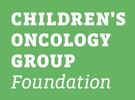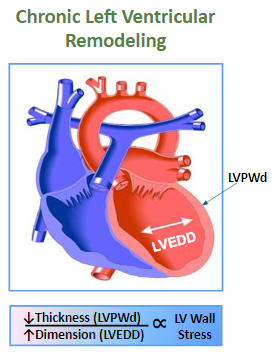|
CREDIT: KAROLINA GRABOWSKA, PEXELS.COM
|
How One COG Researcher is Working to Prevent Heart Failure in Childhood Cancer SurvivorsIt’s an alarming statistic: Pediatric cancer patients are five times more likely to develop heart failure compared to their peers. Thankfully, Dr. Saro Armenian's ground-breaking research is proving that risk can be significantly lowered.
Around 2010, Saro Armenian, D.O., M.P.H. couldn’t stop thinking about a troubling fact: Cancer treatment left his pediatric patients five times more likely to develop heart failure than people who didn't have cancer. And if they did develop heart failure, some needed a heart transplant far too early – in their 20s and 30s. |
Dr. Armenian set out to find ways to improve his patients’ long-term health, which ultimately led him to become the director of the Center for Survivorship and Outcomes at City of Hope. Survivorship is a relatively new field that focuses on supporting and caring for patients not just through their cancer treatment but far beyond it.
After years of studying how childhood cancer treatment affects the heart, he's publishing his findings and designing improvements to treatment protocols. One of his most significant studies suggests it’s possible to prevent heart failure in childhood cancer survivors – before symptoms appear.
“We used to feel like we didn't have any choice but to sit back and wait for bad things like heart failure to happen. Our research has shown it doesn't have to be this way. With the right treatment, we can potentially prevent this problem in our patients and help them live longer, healthier lives,” Dr. Armenian says.
Overcoming the greatest hurdles in pediatric cardiac research
With heart failure, one of the big challenges is that there is a long period where patients do not have symptoms.
“Many patients who are 10 or more years out from cancer treatment are no longer being followed by an oncologist,” Dr. Armenian says. “So, they could be walking around in their 20s or 30s with life-threatening, preventable heart problems and have no idea.”
Dr. Armenian knew that giving non-cancer survivors who have a risk of heart disease a low-dose of baby aspirin could help prevent heart problems, and he wondered if a similar approach could be applied to people who underwent cancer treatment as children. In 2005, French researchers published an intriguing study that led him toward an answer. The researchers gave a low-dose blood pressure medication to younger adults with Duchenne muscular dystrophy, which predisposes them to heart failure. The results showed that taking the medication could significantly reduce the risk of developing heart failure.
So, Dr. Armenian posed a question to his Children's Oncology Group (COG) colleagues: Could giving a blood pressure medication to childhood cancer patients – before there's any sign they need it – also prevent or reduce heart failure?
The ground-breaking promise of preventive blood pressure medication
In 2016, Dr. Armenian and his COG colleagues designed a study using carvedilol, a generic blood pressure medication that’s affordable, widely-available and safe. They knew that using an inexpensive, established medication could help convince patients – who had already been through so much – to start taking it early.
After years of studying how childhood cancer treatment affects the heart, he's publishing his findings and designing improvements to treatment protocols. One of his most significant studies suggests it’s possible to prevent heart failure in childhood cancer survivors – before symptoms appear.
“We used to feel like we didn't have any choice but to sit back and wait for bad things like heart failure to happen. Our research has shown it doesn't have to be this way. With the right treatment, we can potentially prevent this problem in our patients and help them live longer, healthier lives,” Dr. Armenian says.
Overcoming the greatest hurdles in pediatric cardiac research
With heart failure, one of the big challenges is that there is a long period where patients do not have symptoms.
“Many patients who are 10 or more years out from cancer treatment are no longer being followed by an oncologist,” Dr. Armenian says. “So, they could be walking around in their 20s or 30s with life-threatening, preventable heart problems and have no idea.”
Dr. Armenian knew that giving non-cancer survivors who have a risk of heart disease a low-dose of baby aspirin could help prevent heart problems, and he wondered if a similar approach could be applied to people who underwent cancer treatment as children. In 2005, French researchers published an intriguing study that led him toward an answer. The researchers gave a low-dose blood pressure medication to younger adults with Duchenne muscular dystrophy, which predisposes them to heart failure. The results showed that taking the medication could significantly reduce the risk of developing heart failure.
So, Dr. Armenian posed a question to his Children's Oncology Group (COG) colleagues: Could giving a blood pressure medication to childhood cancer patients – before there's any sign they need it – also prevent or reduce heart failure?
The ground-breaking promise of preventive blood pressure medication
In 2016, Dr. Armenian and his COG colleagues designed a study using carvedilol, a generic blood pressure medication that’s affordable, widely-available and safe. They knew that using an inexpensive, established medication could help convince patients – who had already been through so much – to start taking it early.
|
The study followed two groups of people who had received high-levels of a chemotherapy drug known to cause heart failure in high doses but had no signs of heart damage. One group took low-dose carvedilol for two years, and the other took a placebo. The results, published in Lancet Oncology in January 2024, showed that the majority of patients who took the placebo experienced changes in the size and shape of their heart muscle. These structural changes make it harder for the heart to pump blood, which, over time, can lead to heart failure. “We were blown away because we were able to show that for patients who took carvedilol for just two years, their risk for heart failure was significantly lowered,” says Dr. Armenian. |
|
"We often hear statistics on five-year survival rates. But for us, that’s not enough – not even close. We want to be part of the team helping to find cures for all childhood cancers, and we want to see those kids live long healthy lives. Because heart problems are so common in survivors, supporting Dr. Armenian’s research is crucial to the vision of pediatric cancer patients having healthy adulthoods." Becky Chapman Weaver Chief Mission Officer St Baldrick's Foundation |
Collaborative COG studies make monumental strides toward longer, healthier futures
Dr. Armenian’s work illustrates the growing need for studies that look at ways to help pediatric cancer survivors stay as healthy as possible, long-term. "One of the medical world’s great success stories is that so many children with cancer are surviving and living long, full lives." Dr. Armenian says. "But those lives also come with a variety of health problems related to their cancer and its treatment – everything from reproductive problems to cognitive problems to subsequent cancers." The carvedilol study demonstrates how COG is uniquely positioned to execute collaborative studies, even when they involve older patients who are no longer receiving active cancer care at a COG member institution. Dr. Armenian hopes to be able to run another, larger study that follows patients who take carvedilol for longer than just 2 years, looking at whether cardiac damage can be sustainably prevented over time – or even completely reversed. “Last week, in my clinic I saw a patient who had a very difficult time during their cancer treatment because of multiple relapses of his cancer, from which he is now cured. He is someone who would be at high risk of developing heart failure later in life. He was there as a thriving adult, with his fiancé, working as a local police officer,” Dr. Armenian says. Patients like these remind Dr. Armenian of why research into a patient's future health is as important as saving their life. And he’s grateful to donors like the St. Baldrick’s Foundation who supported the carvedilol study believe the same. They deserve to thrive for decades after treatment,” he said. “I’m hoping our insights from this study will pave the way for new approaches to reducing heart failure risk for all pediatric cancer patients.” |



